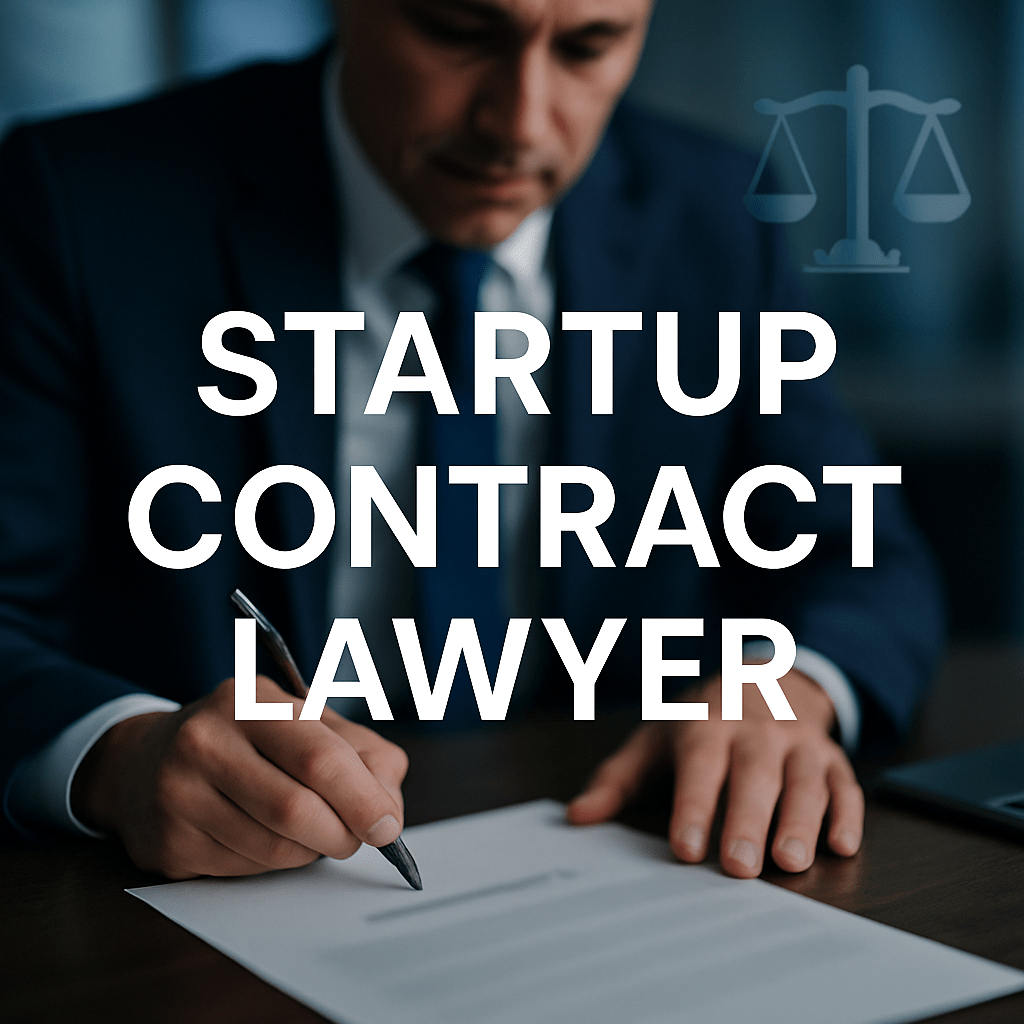In this article, L.A. Tech and Media Law Firm explains how a startup contract lawyer helps founders review, draft, and negotiate early-stage agreements—protecting intellectual property, avoiding personal liability, and positioning for scale.
In the fast-paced world of tech entrepreneurship, startup founders often find themselves signing contracts with developers, designers, marketers, and advisors before they’ve even closed their first funding round. At L.A. Tech and Media Law Firm, a technology law firm in Los Angeles, we’ve seen how one poorly drafted agreement can derail product launches, create IP ownership disputes, or even hand over control of core assets to outsiders.
This blog breaks down what a startup contract lawyer actually does—and why hiring one early can be the smartest investment a founder makes.
What Kind of Contracts Do Startups Need to Review?
Startups engage a variety of service providers and collaborators in their early days, often before in-house counsel or a general counsel hire. Common contract categories include:
- Web Development and App Design Agreements
These often cover scope, timelines, payment structure, and—most critically—ownership of the resulting code, designs, and assets. - SEO and Marketing Vendor Agreements
These may contain exclusivity provisions, non-compete clauses, or assignment of content ownership, which can impact your brand strategy. - Independent Contractor Agreements and NDAs
For freelance engineers, content creators, or AI consultants, the contract should ensure that all IP is assigned to the company and that confidentiality is legally enforceable. - Collaboration or Joint Venture Agreements
If discussing ideas with external partners or agencies, startups should use a customized Confidentiality Agreement or NDA to avoid unintended disclosure of trade secrets or product ideas.
Why NDAs Are Not One-Size-Fits-All for Startups
Founders often download NDA templates from the internet or use investor-issued forms when disclosing product concepts, technology roadmaps, or AI models. This is risky.
A startup contract lawyer ensures that:
- The definition of “Confidential Information” is specific and favors the startup.
- Residual knowledge or “feedback clauses” are narrowed or removed.
- The duration of protection aligns with the sensitivity of the information (e.g., 3-5 years for tech, longer for trade secrets).
- Choice of law and forum clauses don’t favor the other party.
In AI and software ventures, we often revise NDAs to account for machine learning training data, model architecture, and proprietary algorithms—all of which may be inadvertently disclosed in early conversations.
What Happens If You Sign Without Legal Review?
Many founders unknowingly sign contracts that:
- Assign ownership of product designs or code to a contractor or agency
- Give marketing vendors license to reuse content for other clients
- Fail to include work-for-hire language, leading to copyright disputes
- Create ambiguity over who owns the final deliverable or branding elements
- Include indemnity clauses that expose the founder personally to liability
Once a startup hits product-market fit or secures venture capital, these early contract mistakes can surface during diligence—and jeopardize a funding deal or acquisition.
 How a Startup Contract Lawyer Helps Founders
How a Startup Contract Lawyer Helps Founders
At L.A. Tech and Media Law Firm, we advise early-stage startups on a range of contract needs, including:
1. Contract Drafting Aligned With Your Business Model
We customize agreements to reflect your tech stack, growth stage, and risk profile—whether it’s a flat-fee MVP build or a long-term equity-based services deal.
2. Vendor and Consultant Negotiation Support
We negotiate directly or ghost-review counterparty redlines, ensuring your startup doesn’t agree to clauses that hurt you down the line.
3. Custom NDA Drafting for Investor and Partner Conversations
We tailor confidentiality language for pitches, prototypes, and sandbox access—especially critical for AI startups disclosing model architecture or datasets.
4. IP Assignment and Work-for-Hire Language Enforcement
Every agreement with a creative or technical partner should include clear IP ownership provisions. We make sure your company—not the individual—is the legal owner.
5. Avoiding Future Disputes with Well-Written Terms
Good contracts prevent litigation. We focus on scope, deliverables, timelines, dispute resolution, and payment triggers that reduce ambiguity and friction.
Do Startups Really Need a Contract Lawyer This Early?
If your startup is:
- Launching a product MVP with outside devs or agencies
- Hiring a fractional CMO or brand strategist
- Pitching IP-heavy ideas to VCs or vendors
- Using AI tools or contractors with proprietary datasets
- Growing your website, app, or digital content base
Then yes—you need a startup contract lawyer involved now, not later. A small legal investment upfront can prevent costly IP battles, scope disputes, and litigation threats down the road.
Common Startup Contract Mistakes We Fix
We often get called in to fix contracts after the damage is done. Here are some issues we routinely resolve:
- Developer retains copyright in website code
- Designer fails to transfer logo or branding rights
- Contractor NDA expired before product launch
- Equity compensation agreement lacks vesting language
- White-labeled AI tool agreement creates ownership ambiguity
If any of these sound familiar, you’re not alone. Most founders don’t realize their exposure until it’s too late.
How Founders Can Prepare for a Contract Review
To speed up review and reduce costs, founders should:
- Gather all relevant agreements (drafts, executed, email threads)
- Note any deadlines, deliverables, or redline versions
- Clarify who the counterparty is (LLC, agency, individual?)
- Be honest about what’s been verbally agreed outside the contract
Best Startup Contract Lawyer
When you’re moving fast, contract review can feel like a bottleneck—but the right legal infrastructure sets the foundation for scale. Whether you’re onboarding vendors, negotiating NDAs, or protecting your IP, L.A. Tech and Media Law Firm can help. David Nima Sharifi, Esq., founder of the firm, is a nationally recognized IP and technology attorney with decades of experience in contract strategy, tech startup law, and intellectual property protection. Schedule your confidential consultation now by visiting techandmedialaw.com or using our secure contact form.
Related Blog Posts
- Startup Governance Structure: Legal Tips for Scaling Tech Teams
- Startup Financing Options: How to Fund Your MVP Without Losing Control



